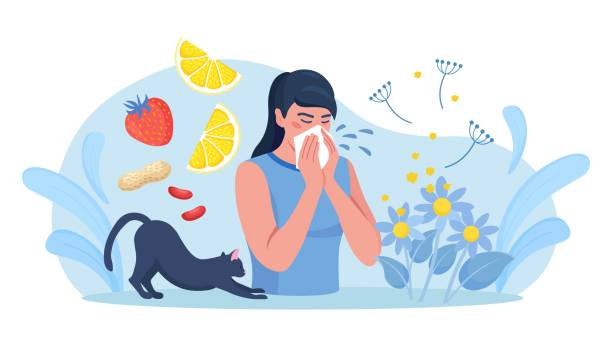Allergies: Why Are We So Sensitive?
Written by Azzy Xiang
Allergies have become a prevalent concern in modern society, affecting millions globally. Even the simple act of consuming peanuts could lead to human death, and understanding why we are so sensitive to certain substances is crucial for both individual health and public awareness. Allergies occur when the immune system mistakenly identifies harmless substances, such as nuts, pollen, or pet dander, as threats. This misunderstanding leads to overreactions, resulting in symptoms ranging from mild (sneezing) to severe (anaphylaxis).
Some scientists hypothesize that one significant factor coming into play is hygiene. This theory suggests that reduced exposure to microbes in early childhood can lead to an underdeveloped immune system, making individuals more prone to allergies. In our increasingly sanitized world, children often miss out on the beneficial exposure to diverse microorganisms that help build robust immune responses. Thus, parents’ attempts to get children to avoid dirt and excessive play outside may actually be counterproductive.
Of course, genetics plays a pivotal role, as they do with anything related to the human body and how it acts. Studies indicate that individuals with a family history of allergies are more likely to develop them. Specific genes related to immune response determine how our bodies react to allergens. Consequently, realizing the impact of the genetic component can help identify at-risk individuals and foster early interventions.
Environmental factors also play a significant role in allergy prevalence. Urbanization, pollution, and climate change exacerbate allergic reactions. For instance, rising temperatures can extend pollen seasons, increasing exposure for those who are particularly sensitive or allergic. Addressing these environmental changes is essential for mitigating allergy issues in large populations, too.
To conclude, the growing sensitivity to allergens stems from a complex knot of genetic predisposition, environmental factors, and lifestyle choices starting as early as childhood. Increased awareness and research into these areas can pave the way for better management strategies and improve the quality of life for those affected by allergies. By fostering a more balanced approach to hygiene and exposure, we can reduce the burden of allergies in future generations.
Written by Azzy Xiang from MEDILOQUY


